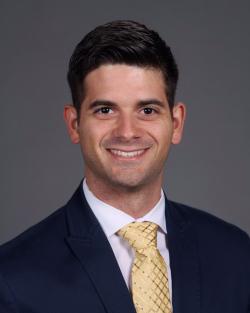
Boca Raton, FL, United StatesAge: 26
Tell us a bit about yourself!
I founded Fishing for Families in Need when I was 15 years old in my hometown of Boca Raton, FL. The organization’s mission is to educate and empower individuals as responsible anglers through hands-on sustainable fishing programs that foster community engagement. Since founding the organization, I have focused on growing and enhancing overall impact by expanding to new locations and personally instructing hundreds of children over the past 11+ years. I also founded a nonprofit in the Bahamas, Lend a Hand Bahamas, which brings opportunities and activities to underserved communities of the Bahamas.
I am currently a fundraising professional, and graduated from Duke University with a Bachelor's Degree in Public Policy Studies as well as a Certificate in Blockchain Strategy from Oxford University. I am also the author of Civic Engagement: How to Start, Grow, and Sustain Your Efforts. Overall, I am passionate about environmental education and work tirelessly to see that individuals understand sustainable and responsible ways to interact and utilize the amazing resources all around us.
What inspired you to become a champion for the environment and environmental education?
My inspiration to become a champion for the environment has really been forming my entire life. I grew up only a few miles from local beaches in Boca Raton, FL, and as a child and teenager I would constantly go out fishing and snorkeling. However, I often took this amazing marine ecosystem for granted. I realized the true need for environmental protection after a summer trip to Nassau, Bahamas, in 2007 when I was 15 years old. A local Bahamian family took me on many diving and snorkeling adventures, all while teaching me about the damage being done to these precious habitats around the world through poaching, dredging, and overfishing, to name a few.
I was not (and am still not) an expert on marine science and conservation. I simply knew the basics, but wanted to continually learn more about the subject as I got older. Throughout high school and college, I took environmental courses to help me further strengthen my organization’s curriculum with a special focus on aquatic ecosystems. I am continually motivated by the fact that I know we are equipping individuals to thoroughly enjoy a sport while also becoming life-long stewards of this outstanding resource.
What advice would you give to the next generation of leaders that are looking to bring about positive change in their communities through EE?
I would encourage individuals of all ages to get out into their local environment and travel as much as possible to National Parks, State Parks, and other ecological sites to fully understand the amazing resources we have on Earth. By doing so, I hope people will develop a strong appreciation for protecting the environment that is so vital to our own existence.
I also want to stress that you do not have to be a certain age to care about or even have an impact on the environment. I encourage people of all ages to learn more about how they can get involved locally in initiatives such as recycling, beach clean-ups, petitions, and more. Young leaders should also work hard to find a good mentor or organization to partner with to further increase their potential positive impact on the environment.
If you had to live in one place for the rest of your life, where would it be?
Nassau, Bahamas. Over the past 11+ years, I have traveled to Nassau over 40 times to visit friends and volunteer with Lend a Hand Bahamas, the organization I helped start a few years ago. The people, culture, and the beautiful ecosystems in the Bahamas are truly unique and have made a deep impression on me. I encourage everyone I meet to go to Nassau and other Bahamian islands for a positive experience like no other.
What pro-environmental behavior do you think would make a big impact if everyone in the world started doing it?
Eliminate the use of Styrofoam in their daily lives. Styrofoam is not sustainable and negatively impacts the levels of pollution worldwide, especially in our marine and freshwater habitats. I encourage everyone to find alternative, more decomposable materials to use, and the effort would be tremendously bolstered if companies agreed to stop using Styrofoam as well.